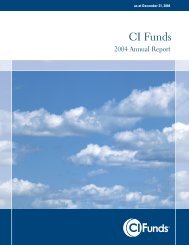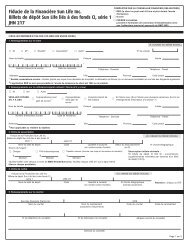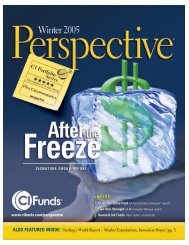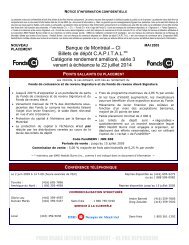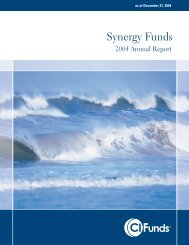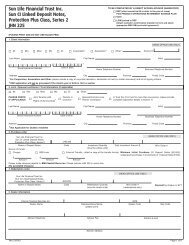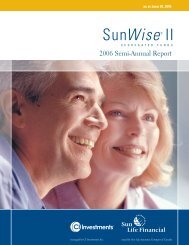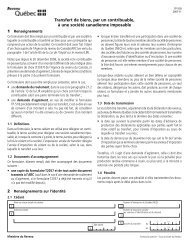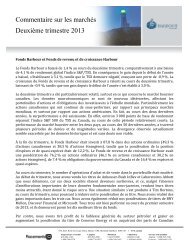March - CI Investments
March - CI Investments
March - CI Investments
- No tags were found...
You also want an ePaper? Increase the reach of your titles
YUMPU automatically turns print PDFs into web optimized ePapers that Google loves.
Japan’s Deflation Has Persisted Since 1998:Year-on-Year Percentage Change in Consumerand GDP Deflator6543210-1-2-386 88 90 92 94 96 98 00 02 04 06 08Source: OECD and Haver AnalyticsCPI (YOY%)GDP Deflator (YOY%)Chart 4: Japan has suffered from persistent deflation since the Bankof Japan was granted independence in 1998 and political pressuresare mounting for the bank to adopt more aggressive easing measures.In that regard, perhaps Japan rather than Greece is the true“canary in the coal mine” as major governments contendwith issues of fiscal sustainability in coming years. Thisdevelopment in Japan bears very close watching since higherinflation in Japan would almost certainly mean importantspillover effects on other nations, including a weaker yen,higher Japanese government bond yields, and a new source ofdemand for commodities as a hedge against higher inflation.It could also imply explosive growth in Japanese corporateprofits during the initial transition stage from deflation toinflation, and a de-rating of any premium to Japanese priceearningsratios as Japan’s bond yields and inflation rateconverged with those of other major developed nations afteryears of being consistently lower. Close observers of Japanesepolitics do not expect any economic regime change in Tokyountil after Upper House elections expected to be held in July.Conclusion: Don’t sell short the global recoveryIn summary, we think it has become increasingly clear thatthe world economy is on the cusp of a broad-based andself-sustaining recovery, with full participation of the majordeveloped markets and the leading emerging markets alike.With yield curves in most developed nations remaining steepand positively sloped, and with credit spreads and equitymarkets signalling increased confidence in the sustainabilityof the recovery, the risks of a “double-dip” recession now lookquite low despite the “wall of worry” that remains regardinggovernment fiscal positions. Even though renewed boutsof volatility may occur as emerging market nations likeBrazil, China and India begin pulling back from hyperaccommodativemonetary policy, we would be reluctant tosell short the global recovery when policymakers in the majordeveloped nations remain focused on generating “virtuouscircles” of stronger labour income and consumption growthand improved starting points for fiscal consolidation in 2011and beyond.William SterlingChief Investment OfficerTrilogy Global Advisors, LLCPAGE 18 • SPRING 2010 PERSPECTIVE AS AT MARCH 31, 2010




